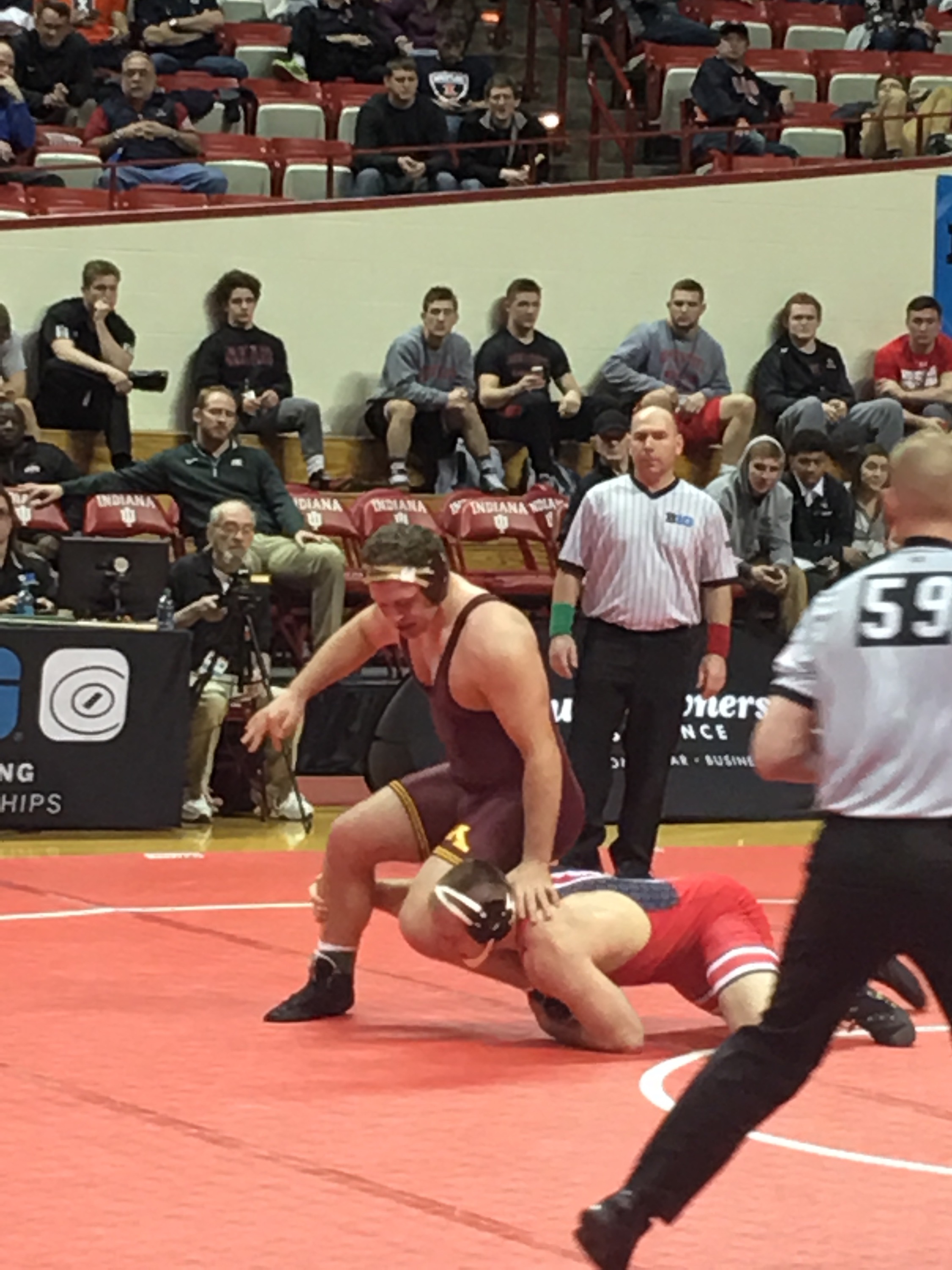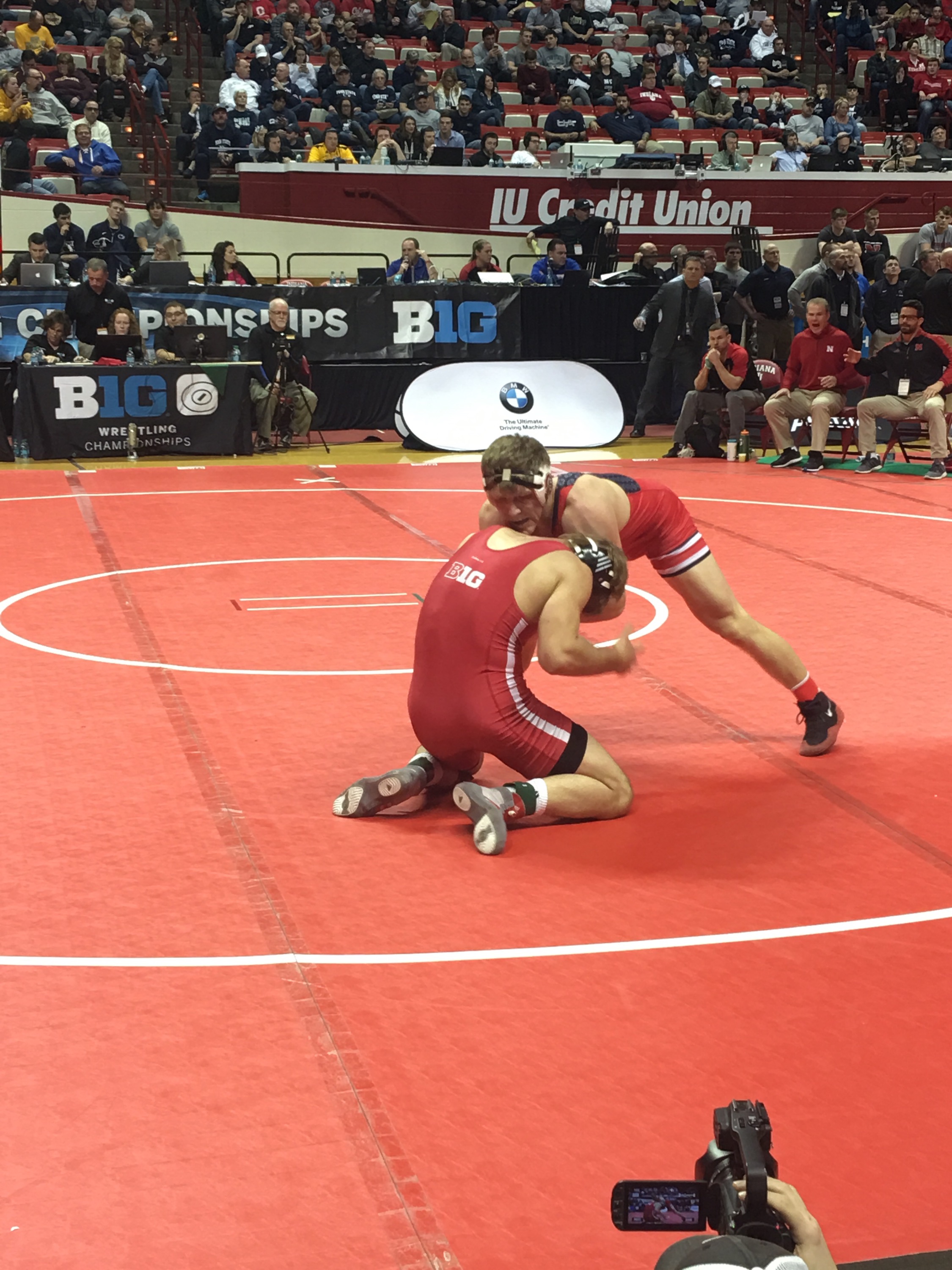Ohio State-Campbell 2017 final score: Baseball Bucks take series from Camels with 7-6 win
Ben Martens via our friends at Land-Grant Holy Land
Visit their fantastic blog and read the full article (and so much more) here
A pair of eighth inning runs for the Buckeyes proved to be decisive in the Tar Heel state.
The first road series of the season for the Ohio State baseball team is in the books, and thanks to a 7-6 win over Campbell on Sunday afternoon, the Buckeyes claimed the rubber match.
An eighth inning RBI sacrifice fly off the bat of junior Tre’ Gantt followed by an run-scoring single by senior co-captain Jalen Washington proved to be the decisive runs for Ohio State. Gantt was 2-for-3 at the plate with a pair of RBIs, while sophomore catcher Jacob Barnwell went 3-for-4 with an RBI and two runs scored in the winning effort.
After coming out on top in the final two games against the Camels, the Buckeyes now stand at 5-6 through the first three weeks of play.
Seth Kinker earned the win in relief, despite yielding a run in two innings of work. Yianni Pavlopoulos, back in his closer role after starting the first two weekends, picked up his first save of the season with a scoreless ninth.
Sophomore Ryan Feltner was on the bump to start for the Buckeyes, looking to leave his rocky first two starts behind him. The right-hander tossed five quality innings, but unraveled in the sixth, and took a no-decision. In all, Feltner allowed five runs, four of them earned, on eight hits, walking two and striking out five.
Campbell sent freshman Ryan Kirk to the mound, who had also been knocked around in the season’s early going. The righty had an afternoon to forget, giving up five runs, four earned, on six hits in 3.2 innings of work. Kirk walked three, struck out two, uncorked a wild pitch, and was the recipient of two passed balls. He didn’t factor into the decision on account of his teammates mounting a comeback to tie the game after he had departed.
Ohio State drew first blood, scoring a pair of runs in the second without netting a hit. Zach Ratcliff walked, Tyler Cowles was by a pitch, and Dominic Canzone drew a free pass as well to load the bases. Kirk was then the victim of a passed ball and a wild pitch on back-to-back pitches with Barnwell at the plate, allowing Ratcliff and Cowles to score.
With Canzone now standing on third, Barnwell sent a slow chopper to short, and the Camels’ Adam Wyse couldn’t make the play. It went as an infield single, and pushed the Buckeye advantage to 3-0.
But Ohio State wasn’t finished. Gantt followed with a single to right-center and Washington walked to load the bases once more. Noah McGowan dug in at the plate and watched as a second pitch of the inning glanced off the glove of Campbell catcher Zach Minnick and went to the backstop. Barnwell trotted home with the Buckeyes’ fourth run.
Campbell got one back in the bottom of the frame thanks to a miscue in the field by Ohio State. Jeff Hahs and Matt Barefoot had consecutive one-out singles, putting two on base. Minnick then sent what looked like a tailor-made double play ball to Washington at short, but the Buckeye senior booted it, loading the bases. An RBI groundout by Christian Jones followed, and the score was 4-1.
A second run came an inning later when Feltner walked Wyse and gave up a two-out double to right-center to Jimmy Monaghan, cutting the Camels’ deficit to just two after three innings.
A response run came when Ohio State got its own two-out hitting going in the top of the fourth. Barnwell doubled down the line in left field and Gantt followed by ripping his second single of the game to make it 5-2. Kirk’s day was done at that point, with Campbell head coach Justin Haire going to redshirt junior Harry Thomas out of the bullpen.
Feltner ran into trouble in the home half of the sixth, though, yielding singles to Cole Hallum and Monaghan and walking Hahs to load the bases with nobody out. The Hudson, Ohio native fought back, getting Barefoot to pop out to short right and striking out Minnick looking with a fastball painted on the outside corner of the plate at the knees.
An escape was within reach, but with a full count, Jones smacked a double into the right field corner that cleared the bases and knotted the game up at five. Trenton Davis struck out to end the inning, but the damage was done and the Buckeyes found themselves in a whole new ballgame.
Thomas cruised for a couple of innings, but nearly gave the lead right back to Ohio State. McGowan led off the seventh with a double and advanced to third on a fly ball to right by Ratcliff. The go-ahead run 90 feet from home, the Camels intentionally walked Bo Coolen to put runners on the corners with one out. That strategy paid dividends, as Brady Cherry grounded into a 6-4-3 double play to end the inning.
In the eighth, a Cowles single, a throwing error by Thomas on a bunt by Canzone, and a bunt single by Barnwell loaded the bases with nobody out and set the table for Gantt and Washington to bring the winning runs plateward.
Kinker yielded a solo homer to Barefoot with one out in the bottom of the eighth, but worked around a two-on, two-out situation to send the game to the final frame with the Buckeyes up 7-6. Pavlopoulos faced the heart of Campbell’s order in the ninth, and set them down in order on just 11 pitches.
Next up for Ohio State is a another trip down south for a three-game weekend series against Florida Gulf Coast in Fort Myers next Friday through Sunday. The Buckeyes will take part in the Snowbird Classic in Port Charlotte, Florida the following Tuesday and Wednesday before finally returning to Columbus for the home opener at Bill Davis Stadium in two weekends.
Continue reading...






 that game was televised on.
that game was televised on.


